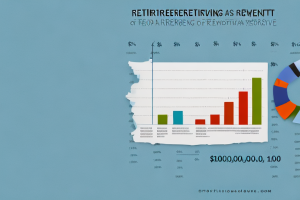Introduction: Retirement is a significant milestone in our lives, a time when we leave the workforce and transition into a new phase. As we look forward to enjoying the fruits of our labor, we must also consider the financial implications and make well-informed decisions. One key area that often requires careful consideration is how much cash we should keep when retired. In this article, we will delve into the importance of cash reserves, evaluate the role of cash in retirement portfolios, explore strategies for managing cash flow, and dispel common misconceptions. By the end, you will have a comprehensive understanding of how to determine your ideal cash allocation for retirement.
Understanding the importance of cash reserves in retirement
During retirement, having a sufficient amount of cash reserves is essential for several reasons. Firstly, cash provides us with a financial safety net, offering liquidity and readily available funds to meet daily expenses, cover unexpected costs, and handle emergencies. It offers peace of mind, ensuring we have immediate access to funds without relying solely on investment accounts or incurring unnecessary debt.
Moreover, cash reserves serve as a buffer against market volatility. By maintaining a portion of our retirement savings in cash, we can ride out market downturns without having to sell investments at unfavorable times. This long-term perspective helps us maintain stability and avoid making impulsive investment decisions solely for short-term cash needs. Additionally, having cash reserves can provide the flexibility to take advantage of investment opportunities when the market presents favorable conditions.
Finally, cash reserves offer psychological benefits. Having a comfortable cushion of cash allows retirees to enjoy their golden years without constantly worrying about meeting financial obligations. It provides a sense of security and financial independence, allowing individuals to make choices and pursue their passions without fear of financial instability.
One important consideration when building cash reserves in retirement is determining the appropriate amount to set aside. This will depend on factors such as individual spending habits, lifestyle choices, and potential sources of income. It is recommended to have at least three to six months’ worth of living expenses in cash reserves to cover any unexpected events or emergencies.
In addition to cash reserves, retirees may also consider other forms of liquid assets, such as short-term bonds or money market funds, which can provide a higher yield while still maintaining a level of accessibility. These options can help retirees maximize their returns while still having a portion of their savings readily available in case of immediate financial needs.
The role of cash in your retirement portfolio
While cash reserves are essential, it is crucial to strike a balance between liquidity and investment returns in your retirement portfolio. Holding too much cash may result in missed investment opportunities and the erosion of purchasing power over time. Conversely, not having enough cash reserves may expose retirees to unnecessary risks and potential financial challenges.
A well-diversified retirement portfolio typically includes a mix of cash, bonds, stocks, and other assets tailored to individual needs and risk tolerance. Cash serves as the foundation, providing stability and acting as a risk management tool. It complements other investments that generate income and growth potential, such as bonds and stocks, helping create a well-rounded portfolio that addresses both short-term financial needs and long-term goals.
By strategically allocating a portion of your retirement savings to cash, you can effectively manage risk, maintain liquidity, and enable portfolio flexibility. Finding the right balance is a matter of assessing your financial needs and future financial goals, taking into consideration factors such as age, health, lifestyle, and desired retirement lifestyle.
One important consideration when determining the appropriate amount of cash to hold in your retirement portfolio is the potential impact of inflation. Inflation refers to the gradual increase in the prices of goods and services over time, which can erode the purchasing power of your savings. By holding a portion of your portfolio in cash, you can help mitigate the effects of inflation and ensure that your retirement savings retain their value.
Evaluating your financial needs during retirement
When determining your ideal cash allocation for retirement, it is essential to evaluate your financial needs comprehensively. Begin by reviewing your expected expenses, both essential and discretionary, including housing, healthcare, travel, hobbies, and any anticipated major purchases. Consider the potential impact of inflation and changing market conditions on these expenses.
Next, assess your sources of income during retirement. This may include social security benefits, pension payments, annuities, rental income, or any other sources of income you have planned or expect to receive. Understanding your baseline income will help you identify how much cash you will need to cover any income gaps or unexpected expenses.
Furthermore, consider your risk tolerance and personal circumstances. If you have additional sources of income or assets that can be readily accessed, you may need a smaller cash reserve. Conversely, if you rely more heavily on investment accounts or have limited access to other income streams, you may require a higher cash allocation to maintain financial security.
Additionally, it is important to regularly reassess your financial needs and adjust your cash allocation accordingly. As you progress through retirement, your expenses and income sources may change. Periodically reviewing and updating your financial plan will help ensure that your cash allocation remains aligned with your evolving needs and goals.



